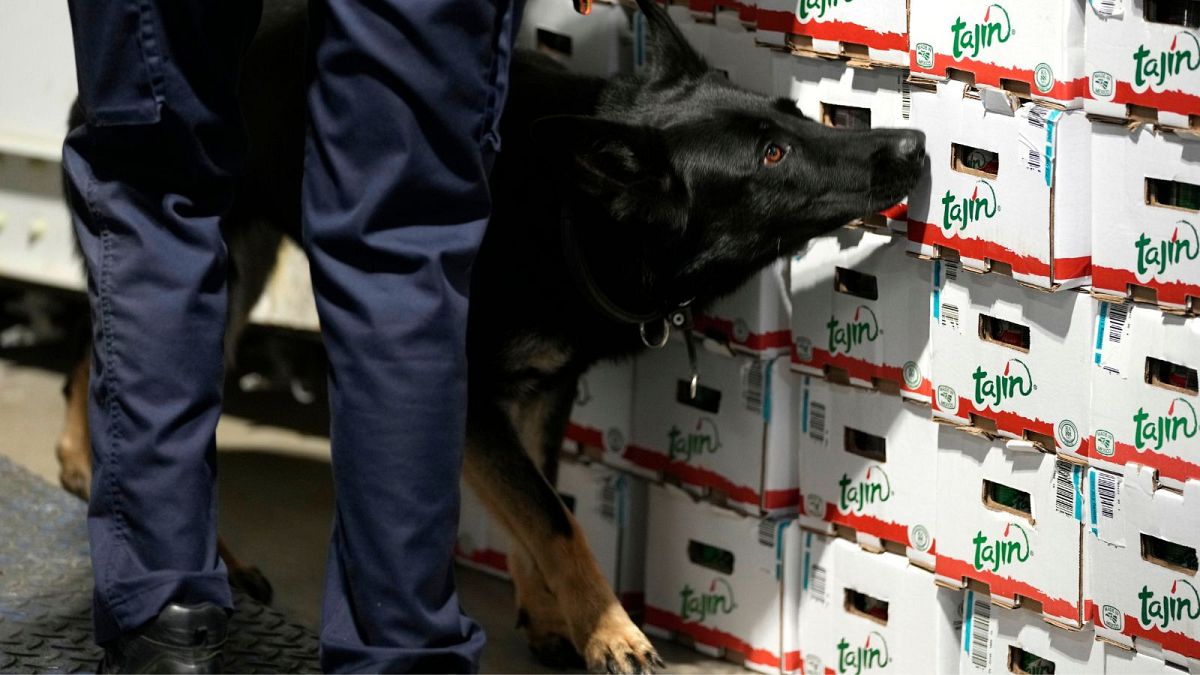The amount of cocaine seized in Europe continues to rise every year, driven by the growing demand among Europeans.
Belgian customs seized a total of 116 tonnes of cocaine in the port of Antwerp in 2023 setting a new record for the country, authorities said on Wednesday.
The Belgian port city has become the main gateway for Latin American cocaine cartels into the European continent, with the quantity of the substance seized in the seaport rising by 6 tonnes from 110 tonnes in 2022.
Colombia, Ecuador - where the government has recently declared a state of war against drug gangs - and Panama were the top origin countries.
Another 5 tonnes of cocaine were seized in 2023 at the port of Zeebrugge, part of the larger Port of Antwerp-Bruges, said Finance Minister Vincent Van Peteghem.
“Thousands of employees spread all over the country, gave their best in once again extraordinary circumstances last year,” the minister said, announcing the record seizures.
The announcement was made a day after 22 people, including three police officers, were arrested in a major anti-drug bust targeting individuals suspected of smuggling cocaine through Antwerp.
The most recent figure available for the European Union shows that authorities are seizing record amounts of cocaine, with 303 tonnes being stopped by member countries in 2021. According to a report from the EU agency monitoring drugs and addiction, 75% of that quantity was seized in Belgium, the Netherlands and Spain.
Belgian authorities decry the impact that drug trafficking is having on the country as foreign criminal organisations insert themselves into Belgian society - especially in Antwerp.
In the past four years, Antwerp has seen dozens of grenade attacks, fires and small bombs, many linked to gangs trying to carve up the thriving cocaine trade.
In Belgium, then-Justice Minister Vincent Van Quickenborne spent some time in hiding after evidence emerged that drug gangs might be seeking to kidnap him, or worse.
European governments blame the growing demand for cocaine across Europe for similar recent outbreaks of violence in major port cities like Rotterdam, in the Netherlands, and Marseille, in France.
In the Netherlands, the government said that a total of 60 tonnes of cocaine were seized last year - a “significant increase” from the year earlier, when more than 51 tons were seized. Most were found in Rotterdam.
State Secretary Aukje de Vries, the minister in charge of the customs authorities, said the fight against cocaine smuggling “continues to require constant attention and investment.”
